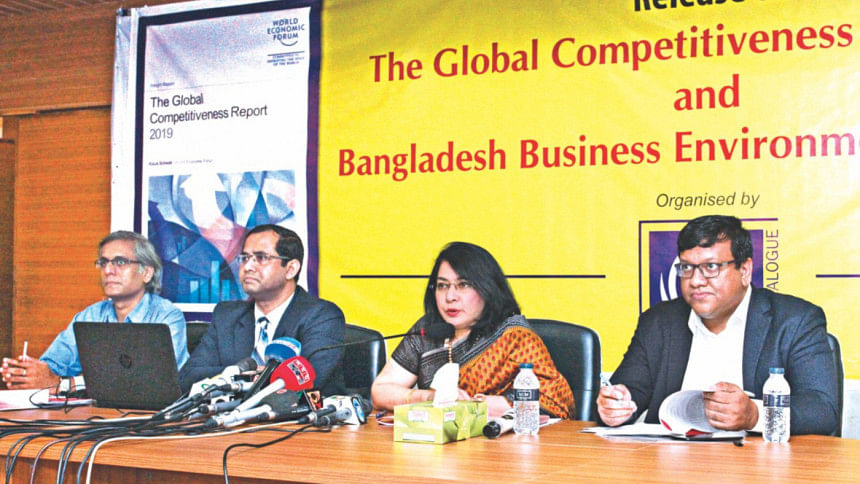Bangladesh slips in GCI ranking

In the latest edition of the World Economic Forum's Global Competitiveness Index (GCI) unveiled on October 9, Bangladesh has slipped two places to 105th position. The index maps the competitive landscape of 141 economies through 103 indicators organised into 12 themes. Unfortunately, the country's score declined in 10 out of 12 pillars. Although Bangladesh is ahead of Nepal and Pakistan, it lagged behind India and Sri Lanka in the SAARC region.
According to the report, Bangladesh is facing four-pronged challenges in terms of competitiveness: lack of improvement in governance and institutions, poor infrastructure, financial system and business operations. We also learn that the country is lagging behind in the development of human resources due to lack of adequate training. It would be misplaced to believe that availability of cheap labour alone would be enough to meet future challenges. It will not be, because only through better skills can we attain greater productivity which is not happening.
On top of that there are emerging market risks: rise in energy price, failure in urban planning, under-employment, failure in climate change adaptation and industrial pollution. A business-as-usual approach is not going to address any of these shortcomings. Some 77 entrepreneurs took part in the survey and 78 percent of them said that the use of bribe is a somewhat usual practice to get public contracts and 76 percent stated that bribery is somewhat common in export and import. Indeed, we find that business houses must also pay bribes in connection with tax payments.
Needless to say, corruption has emerged as a big stumbling block for new entrepreneurs in all sectors and unless this is addressed, slide of Bangladesh's competitiveness cannot be halted. Tackling corruption cannot be a piecemeal effort but a continuous one and the government's declaration of "zero tolerance" on graft must be reflected in action if we want our position in the GCI to climb next year.

 For all latest news, follow The Daily Star's Google News channel.
For all latest news, follow The Daily Star's Google News channel. 




Comments